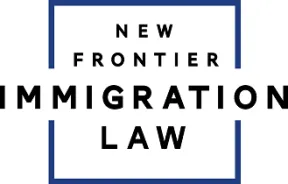
How long should you wait for USCIS to process your marriage green card? Waiting for a Marriage Green Card can feel like an eternity, especially for couples eager to build a future together in the United States. The Marriage Green Card timeline can vary depending on several factors. However, the overall processing times can range anywhere from 9-11 months to several years.
The Marriage Green Card application process can become complicated really soon. However, having an experienced immigration lawyer in Phoenix by your side can help you understand the process and find answers to all the questions you and your family may have.
What Is a Marriage Green Card?
A Marriage Green Card allows a foreign spouse of a U.S. Citizen to apply for lawful permanent residency, paving the way for a future together in the United States. The process is overseen by U.S. Citizenship and Immigration Services (USCIS) and involves several steps.
The spouse who is a U.S. citizen initiates the process by filing Form I-130, Petition for Alien Relatives, on behalf of their foreign spouse. That petition establishes the legitimacy of the marriage (bona fide marriage) to USCIS.
If the foreign spouse is already in the U.S. with a valid visa status, they may be eligible to apply for Adjustment of Status concurrently with the I-130 petition. That allows them to obtain their Green Card without leaving the U.S. However, this option may not be available in all situations, and an experienced immigration lawyer can advise you on your eligibility for concurrent filing.
For a free case review with an Immigration lawyer, call
How Long Does It Take to Get a Marriage Green Card After You Apply?
Are you wondering “how long does it take to get a green card after marriage?” Our lawyers answer many questions on a daily basis, and the processing time for a marriage-based Green Card application is one of the most frequent. And it can range from several months to over a year. The United States Citizenship and Immigration Services (USCIS) processes applications as they are received.
While USCIS aims to provide timely processing, the actual duration can be influenced by various factors, including the complexity of the case and the USCIS workload.
Understanding the Process of Obtaining a Marriage-Based Green Card
The journey to acquire a marriage-based Green Card is a multifaceted process, encompassing several stages, each of which contributes to the overall timeline of the application. This comprehensive overview outlines the key steps involved in this intricate process:
- Petition and Marriage Green Card Application. The initiation of the process rests with the U.S. citizen spouse, who submits Form I-130 – Petition for Alien Relative, on behalf of their foreign-born spouse. Once this petition is approved, the foreign-born spouse can file Form I-485. This fundamental step marks the formal application for the Green Card.
- Biometrics Appointment. The foreign-born spouse must attend a biometrics appointment after submitting Form I-485 – Application to Register Permanent Residence or Adjust Status. This appointment involves the collection of fingerprints, photographs, and a signature, which are subsequently used for thorough background checks and security clearances.
- Marriage Green Card Interview and Approval. The United States Citizenship and Immigration Services (USCIS) schedules an interview to ascertain both the marriage’s legitimacy and the foreign-born spouse’s eligibility for a Green Card. During this interview, the couple may be questioned about their relationship, marriage history, and plans. If the interview is successful and all requisite documents are deemed in order, USCIS may approve the Green Card application.
- Receive Your Marriage Green Card. Upon receiving approval, the foreign-born spouse is issued their marriage-based Green Card, signifying the attainment of lawful permanent resident status within the United States. This vital document confers the right to reside and work in the country and symbolizes a significant step towards embracing life in the U.S. as a permanent resident.
While those steps provide a comprehensive outline of the marriage-based Green Card application process, it’s important to note that the duration and specifics of each stage can vary based on individual circumstances.
By consulting an experienced immigration lawyer, you can navigate potential complexities, ensure accurate adherence to guidelines, and work towards a successful outcome.
Our immigration lawyers
Aspects That Affect the Time a Green Card Takes to Process
The processing time for a marriage-based Green Card can vary depending on several factors. Two significant aspects that can influence the processing time are whether the immigrant spouse is living inside or outside of the U.S. Here’s how these situations can impact the timeline:
If the Immigrant Spouse Is Living Inside of the U.S. (10–13 Months)
If the foreign-born spouse already possesses a valid visa, the overall processing time for a marriage-based Green Card application tends to be shorter. The process generally takes 10 to 13 months, from applying to receiving a Green Card.
This expedited timeline is because the immigrant spouse is already present in the U.S., eliminating the need for consular processing. According to our immigration attorneys, The USCIS can process the application more efficiently, and the foreign-born spouse can often remain in the U.S. In contrast, their Green Card application is being reviewed.
If the Immigrant Spouse Is Living Outside of the U.S. (11–17 Months)
If the foreign-born spouse currently resides outside the United States, the processing time for the marriage-based Green Card application is typically longer. The process usually takes around 11 to 17 months from start to finish.
In this scenario, the Green Card application involves consular processing. After USCIS approves the I-130 petition, the case is transferred to the National Visa Center (NVC), which coordinates with the U.S. consulate in the foreign-born spouse’s home country. This process introduces additional steps and administrative procedures, which can extend the overall timeline.
It’s important to note that these estimated processing times are subject to change based on USCIS workload, policy changes, and other unforeseen circumstances. While these timelines provide a general idea, an attorney with experience in family petitions can give you a more precise time frame.
Complete a
Free Case Evaluation
Form now
Do You Need a Lawyer for a Marriage Green Card? And Why?
While it’s possible to navigate the process on your own, consulting with an experienced immigration lawyer can offer valuable support and peace of mind. Here’s how an immigration attorney can assist you:
Understanding Processing Times and Visa Bulletins
USCIS waiting times for marriage visa applications can be a long wait, depending on your location, current USCIS workload, and the National Visa Center (NVC) backlog. An immigration lawyer can give you a more realistic timeframe based on your specific circumstances and explain how the Visa Bulletin, released monthly by the Department of State, can influence processing timelines.
Eligibility Assessment
Immigration laws can be complex, and an attorney can review your situation to determine your eligibility for a Marriage Green Card. They can consider factors like your current immigration status (Lawful Status or not) and any previous marriages and ensure you meet the requirements for a bona fide marriage.
Accurate Application Filing
The Marriage Green Card process involves multiple government forms, such as Form I-130, Petition for Alien Relative, and potentially Form I-485, Application for Adjustment of Status. An immigration lawyer can ensure these forms are filled out correctly and according to the latest filing requirements to avoid delays due to Requests for Evidence.
Other Immigration Options a Lawyer Can Help You With
The path to living permanently in the U.S. with your spouse can sometimes be more complex than expected. While a Marriage Green Card is a common route, there might be other immigration options available depending on your unique situation. An experienced immigration lawyer can explore all possibilities and recommend the most suitable path for you. Here are a few examples:
- K-1 Fiancé Visa. This visa allows you to enter the U.S. with the intention of getting married within 90 days. An immigration lawyer can advise you on the eligibility requirements and the application process for a K-1 visa, which can be a stepping stone toward a Marriage Green Card.
- Violence Against Women Act (VAWA). If you have experienced abuse from your U.S. Citizen spouse, you may be eligible for permanent residency through VAWA protections. An immigration lawyer can provide sensitive guidance and explain the VAWA requirements.
Remember, immigration law can be nuanced, and there may be other options available depending on your circumstances. An immigration attorney can review your situation and explore all potential avenues to help you achieve your goal of living together in the United States.
An Experienced Attorney Can Estimate How Long Your Application Will Take
Each marriage-based Green Card application is unique, and various factors can influence the processing time. Working with an experienced immigration attorney, such as those at New Frontier Immigration Law, can help you navigate the process, ensure that all required documents are submitted correctly, and estimate how long your specific case might take.
Applying for a marriage-based Green Card is a significant step, and understanding the timeline and requirements can help ease the journey toward obtaining permanent residency in the United States. Contact New Frontier Immigration Law today, and let us answer all your questions.





